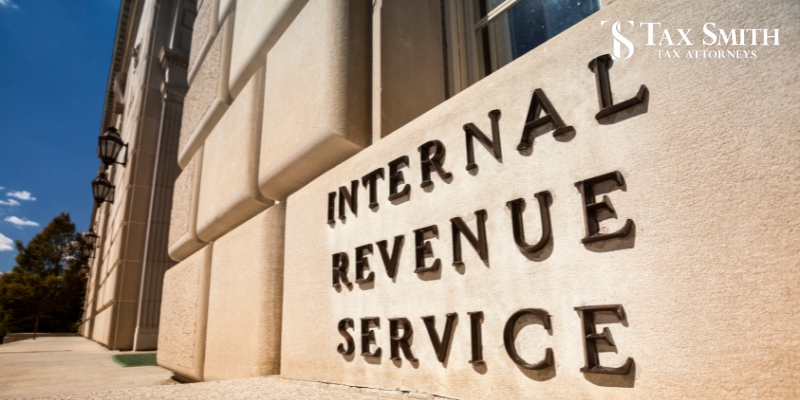1548 The Greens Way – Ste. 4 Jacksonville Beach FL 32250
Ponte Vedra State Tax Attorney
Ponte Vedra State Tax Lawyer
Florida is well-known for not having a state income tax, which is a draw for both individuals and businesses alike. However, this does not mean that those within Florida are not subject to any other taxes. State and local tax laws cover taxes like property tax, sales tax, corporate income tax (for certain companies), and others. Speaking with a Ponte Vedra state tax attorney can help you understand all applicable taxes for you, your family, and/or your business. If your tax concerns go beyond state taxes and involve federal matters, a local IRS tax attorney in Ponte Vedra can provide the guidance you need to handle IRS-related issues effectively.

Florida State Tax Attorneys
Working with a seasoned tax attorney is generally recommended when attempting to navigate tax laws, as they are often complex and difficult to apply practically. Since you will work closely with a tax attorney, it is important to choose a team that you feel comfortable speaking with and is available when needed.
TaxSmith, LLC, understands how crucial correctly interpreting and applying tax law can be. Therefore, we created a compassionate team that works closely with our clients, ensuring that we can effectively combine our decades of experience with your unique circumstances. We offer comprehensive services to ensure that we can meet all of our clients’ tax needs.
Common Legal Tax Disputes
Our fellow taxpayers in Ponte Vedra may face many different types of legal disputes pertaining to their taxes. Some of the most common include:
- Employment Tax Issues
Employment tax issues include the payment of unemployment taxes, proper withholding of federal and state payroll taxes, and the classification of workers as independent contractors or employees. - Tax Audits and Assessments
Taxpayers may experience disputes with the Florida Department of Revenue during an audit, especially pertaining to the interpretation of tax laws, the documentation provided to substantiate income, or deductions or credits claimed. - Tax Liens and Levies
A potential consequence of carrying an outstanding tax debt is having tax authorities place a lien on your property. Levies can also be initiated to seize assets like wages, bank accounts, and property. - Tax Fraud and Evasion
Actions like deliberately underreporting income, concealing assets to evade taxes, and inflating deductions can result in civil penalties or criminal charges. - Innocent Spouse Relief
You should not be held responsible for any tax liabilities that your spouse or former spouse creates. This involves providing evidence that the innocent spouse did not know of the tax issues and did not benefit from the incorrect deductions or underreported income.
Tax Planning Tips
The most effective route to keep yourself on the right side of tax rules and regulations is to be knowledgeable and strategic in your tax management. Some tips that can help you accurately manage your taxes include:
- Maintain accurate records.
- Maximize deductions and credits.
- Understand your tax bracket.
- Plan for major life events.
- Contribute to retirement accounts.
- Utilize tax-advantaged accounts.
Speaking with an experienced tax attorney in Ponte Vedra can help you create a plan that aligns with all state and federal regulations.
Tax Attorney vs. CPA
There are a number of professions created to assist others through complex topics like filing taxes and tax law. It can be difficult to understand which professional you should speak with, but the choice is important. Choosing incorrectly could result in paying more than necessary or not having the specific skillset required to fully solve your issue. Two professionals you may need to choose between are a CPA and a tax attorney. Understanding the difference between a CPA and a tax attorney can help you choose the right professional for your specific tax situation.
A CPA, or a certified public accountant, is an accountant who has obtained certification through an intensive course in managing finances and business records. They are deeply familiar with state and federal tax laws, allowing them to ensure that the clients they work with also abide by these laws. Duties often completed by CPAs include preparing and filing tax documents, advising clients on financial matters, and creating financial reports.
Alternatively, a tax attorney is an attorney who focuses on the American tax system. They may have started their education in a way that is similar to that of a CPA but instead earned a law degree and passed the bar exam. Tax attorneys interpret and apply tax laws and policies, ensuring that their clients follow applicable laws. Duties often handled by a tax attorney include IRS litigation, criminal investigations, and structuring of assets for wills or trusts.

FAQs About Ponte Vedra,FL State Tax Law
Am I Required to File a Florida State Tax Return?
Florida residents are not legally mandated to file a state income tax return because Florida does not have a personal income tax. However, residents who are self-employed or own businesses may be subject to some state tax filing requirements. Florida residents are also required to file a federal income tax return if their income is above the limit set by the IRS.
What Should I Look for in a Tax Attorney?
It can seem daunting to deal with tax issues, so contacting a professional is one of the first steps many take. Unfortunately, finding a quality tax attorney can seem just as daunting. It can help to keep some factors in mind while evaluating your options. The attorney you choose should share your preferred communication types and have availability that lines up with yours. Personal recommendations and good reviews are also indicators that an attorney can effectively handle your tax issues.
What Is a Tax Warrant?
A tax warrant is a claim that acts as a public announcement of an outstanding debt. It is made by a taxing body, such as a state tax department, against an individual’s or entity’s assets because of unresolved tax debts. The outcome of a tax warrant could be the implementation of enforced collection measures, such as bank account freezes, wage garnishments, and property confiscations.
What Are the Consequences of Not Filing Taxes in Florida?
Failing to file your taxes can result in severe consequences, especially if you fail to file over a multi-year span. First, you risk forfeiting your return, as refunds and tax credits must be claimed within three years of their file due date. You can also be charged penalties for failing to file. In severe cases, you can be charged criminally with tax evasion, the consequences of which are fines and/or jail time.
Contact Our Skilled Team Today
Dealing with state tax issues is not to be taken lightly. The right professional team can have significant positive impacts on the outcome of your tax situation. TaxSmith, LLC, is ready to support you through your state tax concerns. Reach out to our office today to see how we can assist you.
Locations We Serve
- Alabama
- Arizona
- California
- Colorado
- Connecticut
- Delaware
- District of Columbia
- Florida – HQ
- Georgia
- Idaho
- Illinois
- Indiana
REQUEST A CONSULTATION
Please fill out the Contact Request Form and a Tax Attorney/Paralegal will call you
to discuss legal representation or to schedule your free initial consultation





